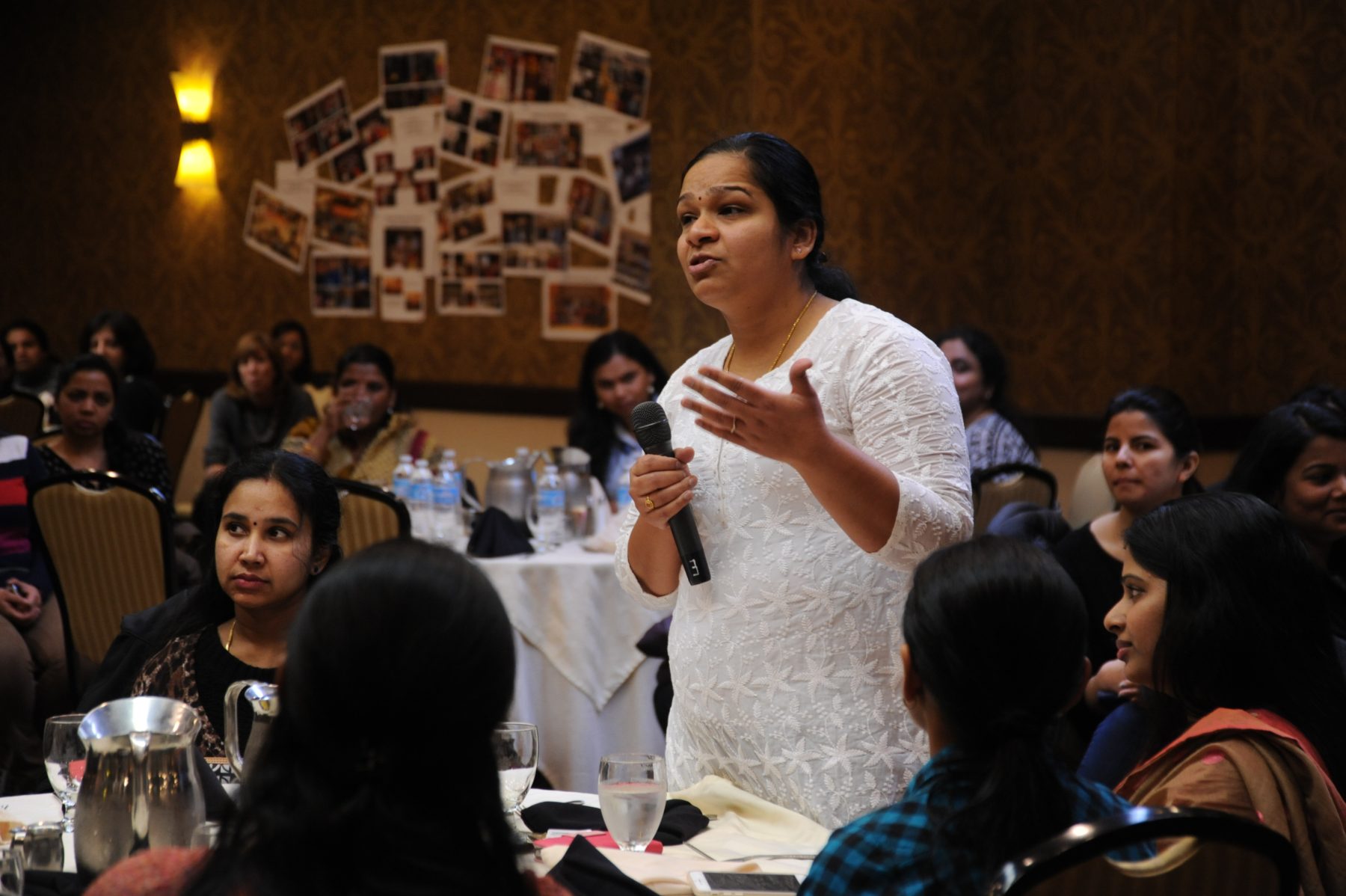Public speaking is an often uncomfortable task. However, there are many benefits to it that can improve not only the way you present yourself in a professional setting, but within your personal life as well.
Public speaking can be a very daunting act.
Sometimes it can feel utterly impossible to place yourself in a position where you have to speak in front of people. Many fear they will look like a fool or that they won’t sound as knowledgeable as they had hoped.
But public speaking is wonderfully helpful and has the ability to not only boost a person’s confidence and self-esteem but can make them feel more confident in aspects of their life outside of the work / school environment.
Ms Alison Bicknell from Deakin University’s Faculty of Arts and Education explains that “if you think about it, only actors and politicians do public speaking by choice – for most of us it’s a duty.

“In the arts there’s an expectation that you’ll put your work and ideas out there.
“Personalising the connection through a live experience can give an edge, especially for emerging writers who have to front up to a very crowded and competitive market.”
What are the benefits?
There is an expectation for creatives to have a public persona which can be a very nerve-racking reality. Many creatives may feel anxious about putting themselves out onto a public platform.
Ms Bicknell says “Authors, for example, are generally required to have some kind of social media presence, as well as being available for launches, readings and public events like festivals.”
“It’s good marketing, a way to connect with your readership.”
Public speaking is also a skill that assists those in post-graduate work, such as PhDs. as a way to communicate research.
“You will get asked to present your findings at some point. This is a good thing! Talking to an audience (as opposed to a readership) is a great way to test ideas” says Ms Bicknell.

“Any management or leadership role will require presentation skills. It’s worth focusing on the positive aspects e.g. that it is a skill and can be learned.
“To use horrid Centrelink jargon, the more skills you have, the more employable you become. Good career tactics!”
Practicing public speaking also comes with personal benefits such as boosting self-confidence.
Ms Bicknell explains, “In lectures, there’s often a wonderful ‘light bulb’ moment when you can see the students’ imaginations firing up. This doesn’t happen online as there’s no shared experience and the energy’s different.”
“Of course, at the time you often feel like you’re terrible and a blithering fool. But, as with everything, the more you do the better you get at it.”
Managing your fears
Unless you are an extrovert, public speaking doesn’t generally come naturally. It is something that is dreaded by the majority of people.
Ms Bicknell explains that the fear isn’t an imagined phenomenon.
“Glossophobia is a real thing!
“There are a bunch of reasons why someone might be afraid to speak in public and these can range from social anxiety to poor self-esteem to hating the sound of your own voice.”
Public speaking can be daunting for women in particular as society has a lengthy history of silencing women’s thoughts and opinions.
With this mindset comes added anxiety when it comes to putting themselves on display on a public platform.

Ms Bicknell says, “Women are so used to being told to shut up or having their opinions devalued in social contexts that it feels weird to be noticed. Visibility becomes unnatural.
“Plus, women often want to be nice and accommodating even though they know that they will always be judged harder than men.”
“That said, public speaking can make anyone anxious, regardless of gender. My advice would be to try to pin down the source of the fear and see if you can find a strategy that addresses it in a targeted fashion.”
Ms Bicknell explains that this might involve breathing exercises or making the space you are presenting within more comfortable and accommodating.
“For example, in some of my classes, students have to give presentations. This gets tricky for those who experience high levels of anxiety and stress.
“However, we can always find a work-around, such as, getting the students to present sitting down or from behind a screen; or just getting someone to stand next to them.”
Whilst this method is not ideal it is a step in the right direction by making the environment more suited to the individual who is presenting.
“Once you feel more in control you’re more likely to give a better speech or presentation,” says Ms Bicknell.
The more you practice how to speak publicly the better you will become and the fear factor will begin to slowly phase out.
Whilst the butterfly feeling may never completely leave, you may become more comfortable with speaking publicly to the point where it doesn’t make you overly anxious to be the centre of attention.
How can it become less daunting?
Ms Bicknell says that one of the best things you can do when faced with public speaking is to adopt a positive attitude and approach.
“In my experience, most people don’t want you to fail.”
A Ted Talk from 2012 by Amy Cuddy explains how staying physically grounded can greatly improve your public speaking abilities.

“Adopt the Wonder Woman pose, there’s science behind it and everything!” says Ms Bicknell.
“Here’s an old script writing tip: if you’re writing your speech, factor in some pauses. Literally, some breathing spaces. A deep breath reduces stress.”
Working towards a friendly face in the crowd can also help to calm your nerves when speaking to a large room full of people.
“This is more useful if the friendly face is towards the back of the room rather than in the front row,” says Ms Bicknell.
Instead of overthinking everything that could go wrong try to adopt a positive mindset and daydream a scenario in which everything goes exactly how you planned.
Ms Bicknell suggests that “if you don’t control the narrative, it will control you!”
She also explains that maintaining enthusiasm and energy will help your presentation go more smoothly.
“The actual words are only a part of the way you are communicating with the audience. Your body language carries the rest.”
Some tips for nailing public speaking
Ms Bicknell suggests that “what works for you will depend on what you find most terrifying about public speaking. Plus it will depend on the context of the speech or the presentation.”

Her checklist of tips for nailing a presentation are:
- Write a speech you are happy to present. Take pleasure in your ideas.
- Rehearse! Practise while doing chores or in the car. Or, experiment with autocue software. Knowing what you want to say means there’s one less thing to worry about.
- Pick your audience ‘mark’.
- Don’t second-guess what the audience is thinking or feeling; it will only put you off



